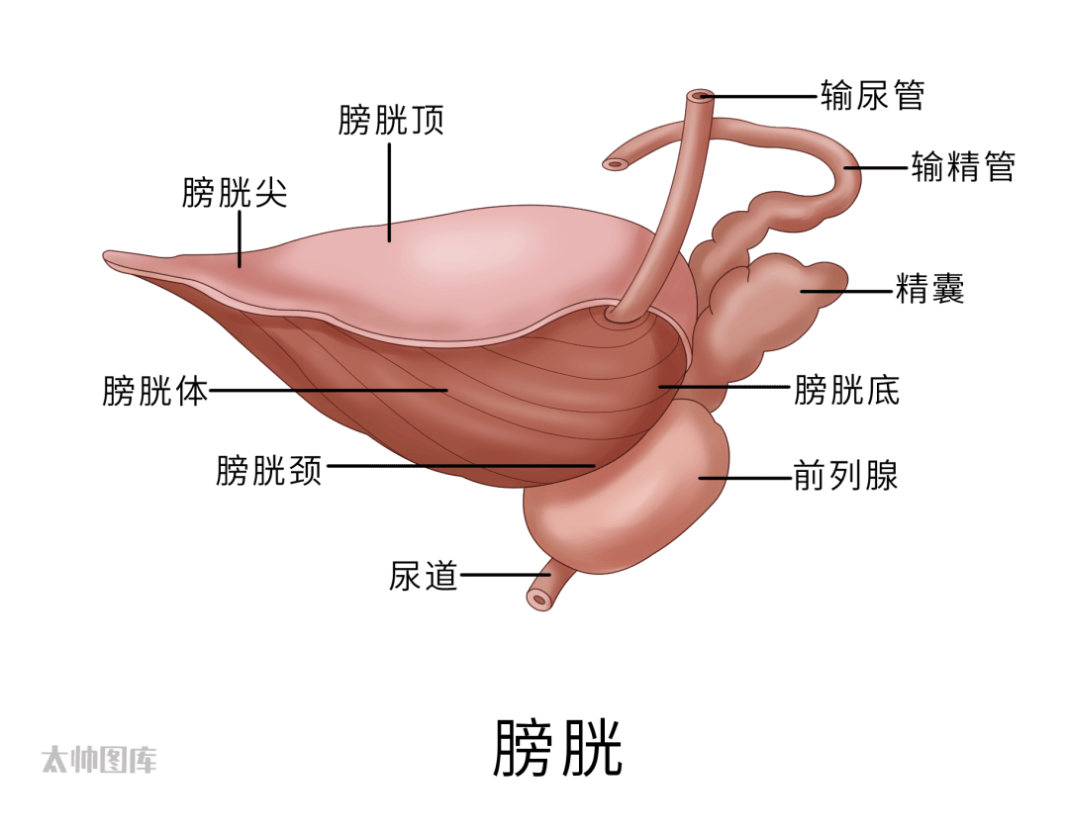“I always thought I was so young, how could I have this condition?”
“It’s embarrassing to tell others about this issue, thinking that it will just go away after enduring it for a while…”
“I’ve been to many hospitals, spent a lot of money in vain, and don’t know what to do…”
Prostatitis, a difficult problem troubling many male compatriots, let’s dig into it today!
Pay attention to these symptoms
Beware of prostatitis targeting you
Prostatitis refers to the inflammatory disease of the prostate caused by pathogenic infections and/or certain non-infectious factors, mainly presenting in two aspects:
Urinary tract irritation symptoms: frequent urination, urgency, dysuria, abnormal urination, and “urethral discharge.”
Local discomfort symptoms: there may be discomfort in the genital area, aching pain in the testicles, bloating pain in the lower abdomen and groin area, and a burning sensation in the anus.
Prostatitis
Why does it “favor” young people?
The prostate is the largest accessory gland in males. During the youth and prime period, it is the peak incidence period for acute and chronic prostatitis, mainly due to two reasons:
On the one hand, unhealthy lifestyle habits, the youth and prime period is a time of vigorous male sexual function, irregular sexual activity, abstinence or excessive indulgence, prolonged sitting, and alcohol consumption cause prostate congestion, leading to inflammation. Additionally, smoking also easily triggers prostatitis.
On the other hand, the youth and prime period is also the time of the highest prostate secretion, providing favorable conditions for bacteria growth and reproduction. If coupled with poor personal hygiene, low body resistance, or infections in adjacent areas (such as the urethra), pathogens can enter the prostate, causing acute and chronic inflammation.
Is prostatitis a sexually transmitted disease?
Is it contagious?
The vast majority of prostatitis cases are not considered sexually transmitted diseases and do not spread to sexual partners. Many patients with chronic prostatitis do not have pathogenic infections, let alone spread through sexual activities or be classified as sexually transmitted diseases.
However, there are exceptions. A few cases of prostatitis are caused by infections such as gonorrhea, chlamydia, mycoplasma, trichomoniasis, or fungi, known clinically as specific prostatitis, falling into the realm of sexually transmitted diseases. These infections may be transmitted to female partners during sexual activity, leading to various vaginal inflammations.
This type of prostatitis should avoid sexual activity in the early stages of treatment. Female partners should also visit gynecology or dermatological clinics for examination. If the female partner is infected, both partners should receive treatment simultaneously.
A few habits to help improve male prostate health
Dr. Wang also reminds us that prostatitis is like a “cold,” just a “common disease” in a “special area,” it can be cured but it is also prone to recurrence. Patients need timely treatment and preventive care.
Exercise regularly
Strengthen exercises for the abdomen, thighs, and buttocks to massage the prostate and promote its health.
Stay hydrated
Drinking more water helps in frequent urination and effectively dilutes the urine concentration. Concentrated urine can irritate the prostate.
Avoid holding urine
Once there is a urge to urinate when the bladder is full, it is advisable to urinate as holding it is harmful to the bladder and prostate.
Avoid spicy foods
Consuming excessive spicy foods, smoking, and alcohol are also causes of prostatitis.
Avoid prolonged sitting
Prolonged sitting, like holding urine, can easily lead to poor local blood circulation and accumulation of metabolic waste products. Therefore, it is recommended to take a few minutes to move around for every hour of work.
Regulate sexual activities
During the sexually active youth period, moderate and regular sexual activity or masturbation can help eliminate prostatic fluid, relieve stasis, improve local blood circulation, and promote the absorption and resolution of inflammation.
Maintain cleanliness
Develop the habit of regularly cleaning the perineal area to keep it clean and dry, prevent retrograde infection, and also prevent prostatitis.
Early diagnosis and treatment
Timely and thorough treatment is needed for chronic prostatitis, urethritis, cystitis, and epididymitis, and other urinary system diseases.
Guidance for this issue: Dr. Wang Guoping, Chief of Urology, Qiantang Branch of Hangzhou Red Cross Hospital
Contributed by: Hangzhou Red Cross Hospital Qiantang Branch (Hangzhou Ninth People’s Hospital)
Reproduction please indicate “Healthy Hangzhou”


